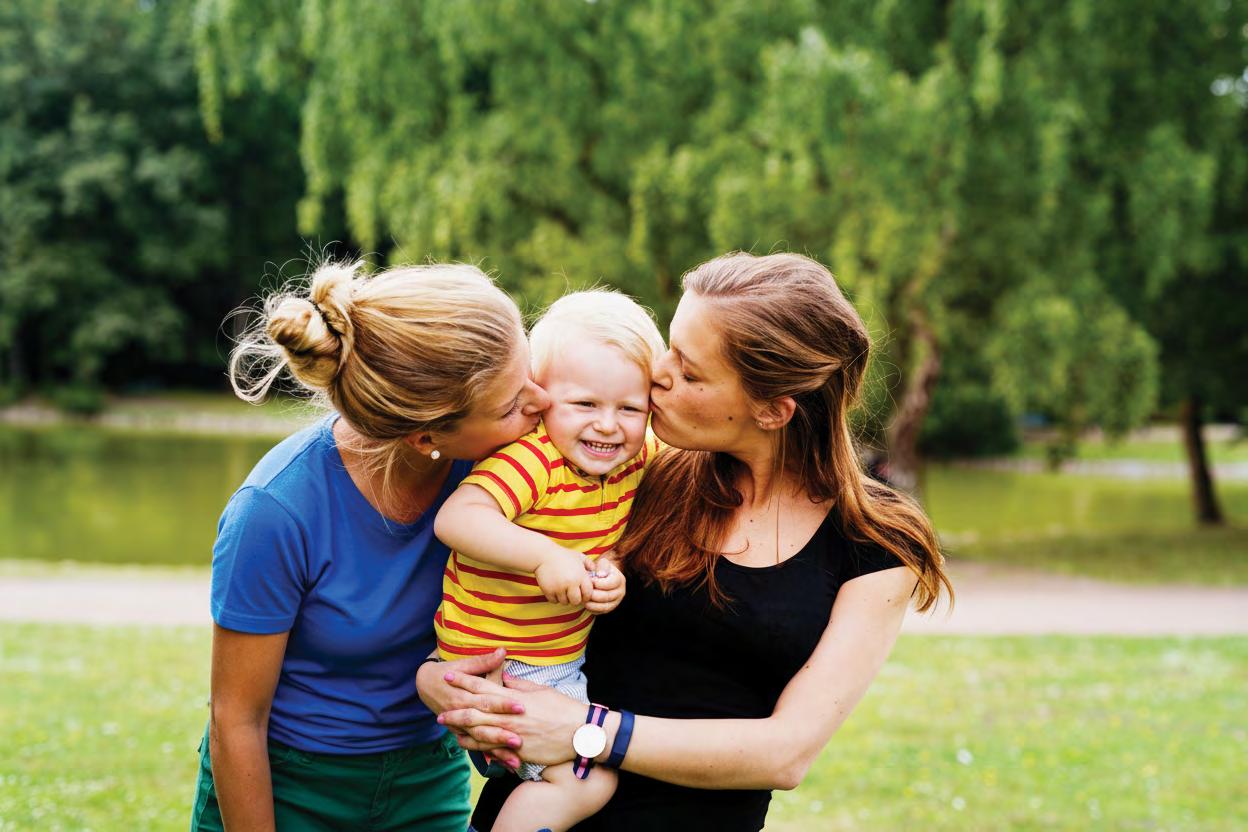

Mapping Realities of Rainbow Families:
A Transnational Desk Research Report Challenges and Needs
This report was prepared under the framework of the project: “Connecting families, educators and policymakers to combat violence and improve the well-being of LGBTIQ children in the Nordic-Baltic region and Ukraine”, co-funded by the Nordic Council of Ministers Prosperous Future programme.
The content of this report represents the views of the authors and does not necessarily reflect the official position of the Nordic Council of Ministers.
Introduction
Rainbow families—defined as family structures that include same-sex couples, LGBTQ+ parents, and their children—have become increasingly visible across Europe in recent decades. Their presence reflects broader social shifts toward diversity, equality, and recognition of human rights. At the same time, these families continue to challenge entrenched legal, social, and political assumptions about kinship, parenthood, and caregiving that are historically rooted in heteronormative models.
Despite important strides toward recognition, rainbow families remain confronted with structural barriers that compromise their security, wellbeing, and equal treatment. These barriers manifest in multiple domains: from gaps in family law and parental recognition, to discrimination in schools, workplaces, and healthcare systems, to broader cultural stigmas that undermine their sense of belonging. The reality is that while rainbow families live, love, and parent across national borders, their rights and protections remain unevenly distributed, often dependent on the political will and legal frameworks of individual states.
This transnational desk research report synthesizes national findings from Lithuania, Estonia, Denmark, Iceland, and Ukraine, situating them within the broader Nordic-Baltic and European contexts. By examining similarities and differences across these settings, the report highlights both progressive developments
and persistent shortcomings. It maps recurring challenges, analyzes lived experiences, and traces how national legal frameworks either enable or restrict the recognition of diverse family forms.
Importantly, this research is not limited to description. Its purpose is also normative: to identify urgent needs, spotlight persistent knowledge gaps, and provide evidence-based recommendations that can guide policymakers, educators, civil society organizations, and advocates in designing inclusive strategies. Such strategies are not merely technical solutions— they are central to ensuring that rainbow families can thrive with dignity, equality, and security, regardless of geography.
In bringing together voices and findings across borders, this report underscores the pressing need for coordinated regional and European action. Rainbow families are part of the social fabric, yet too often remain marginalized within policy debates and overlooked in research. By foregrounding their experiences, this work contributes to building a more just, inclusive, and resilient society for all.
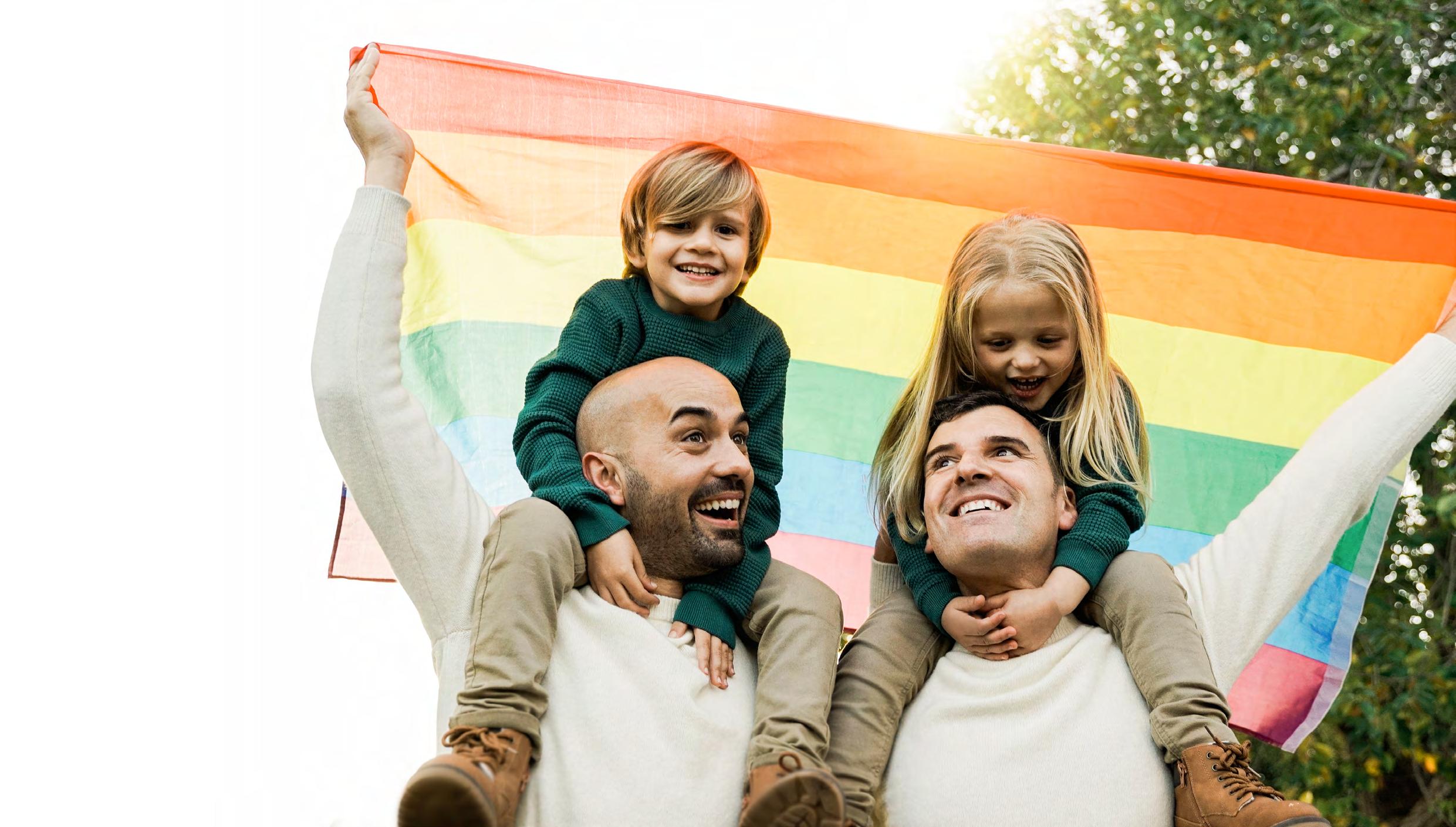
Comparative Legal, Social, and Political Contexts 2.
The landscape of legal, social, and political frameworks affecting rainbow families in the Nordic-Baltic region and Ukraine is marked by stark contrasts. Some states provide robust protections and recognition, while others remain hesitant or resistant. These divergences shape not only the formal rights available to rainbow families but also their lived security, visibility, and wellbeing.
Legal frameworks range from highly progressive to constitutionally restrictive. Denmark and Iceland stand as regional leaders, with marriage equality, joint adoption, and access to assisted reproduction firmly embedded in law. Denmark’s long trajectory—from registered partnerships in 1989 to marriage equality in 2012—has created a relatively stable environment, though the law still restricts recognition to two legal parents. Current debates about multi-parent recognition illustrate how legal frameworks continue to lag behind the realities of diverse caregiving arrangements. Iceland similarly provides comprehensive legal protections, including self-determined gender recognition, adoption rights, and criminalization of conversion therapy. Yet here too, rainbow families remain vulnerable to heteronormative assumptions embedded in institutions.
Lithuania, by contrast, embodies persistent legal resistance. Although the Constitutional Court in 2025 declared both the exclusion of same-sex couples from partnerships and restrictions on assisted reproduction unconstitutional, legislative follow-through has stalled. Same-sex couples remain without statutory recognition, and each family must still seek protection through individual court battles. Isolated cases, such as the recognition of Jūratė Juškaitė as a legal parent in 2024, signal progress but also highlight the precarious reliance on litigation over systemic reform. Ukraine, meanwhile, sits at a transitional moment: civil partnership legislation has entered public debate, and legal recognition is increasingly framed as a European integration issue. However, war has delayed reform, and samesex families remain unrecognized in law.
Social contexts mirror these divergences but also reveal unexpected dynamics. Public opinion in Denmark and Iceland shows broad support for rainbow families, yet institutional environments—schools, healthcare, and workplaces—still often default to heterosexual and binary assumptions. In Iceland, rainbow families report pressure to embody the “model queer family,” reinforcing norms of stability, whiteness, and middle-class respectability. Lithuania’s society remains deeply conservative: Eurobarometer surveys consistently place support for same-sex marriage and adoption among the lowest in the EU. Yet here, too, small generational shifts and growing support for civil unions suggest that attitudes are not static. Ukraine presents a paradox: the war has made LGBTQ+ visibility more pronounced, as queer soldiers and families contribute to national resilience. This has shifted parts of public discourse toward recognition, but hostility from religious and nationalist groups remains widespread.
Political frameworks further entrench inequalities. Denmark and Iceland have integrated LGBTQ+ rights into equality policies and national strategies, ensuring rainbow families are included in
mainstream planning. Denmark’s Parliament is actively debating multi-parent reforms, and Iceland has institutionalized its LGBTI Action Programme, though concerns remain about long-term sustainability. Lithuania, by contrast, lacks any comprehensive LGBTQ+ policy framework. Successive governments have excluded LGBTIQ+ rights from national strategies, and the 2024 elections brought a coalition that is more socially conservative than its predecessor. This structural neglect leaves rainbow families dependent on civil society advocacy and court rulings. In Ukraine, institutional engagement is still nascent. While political elites increasingly frame partnership recognition as necessary for EU accession, the absence of concrete legislation keeps rainbow families in legal limbo.
Taken together, these comparisons illustrate that legal progress does not automatically secure lived equality, and political commitments are often fragile.
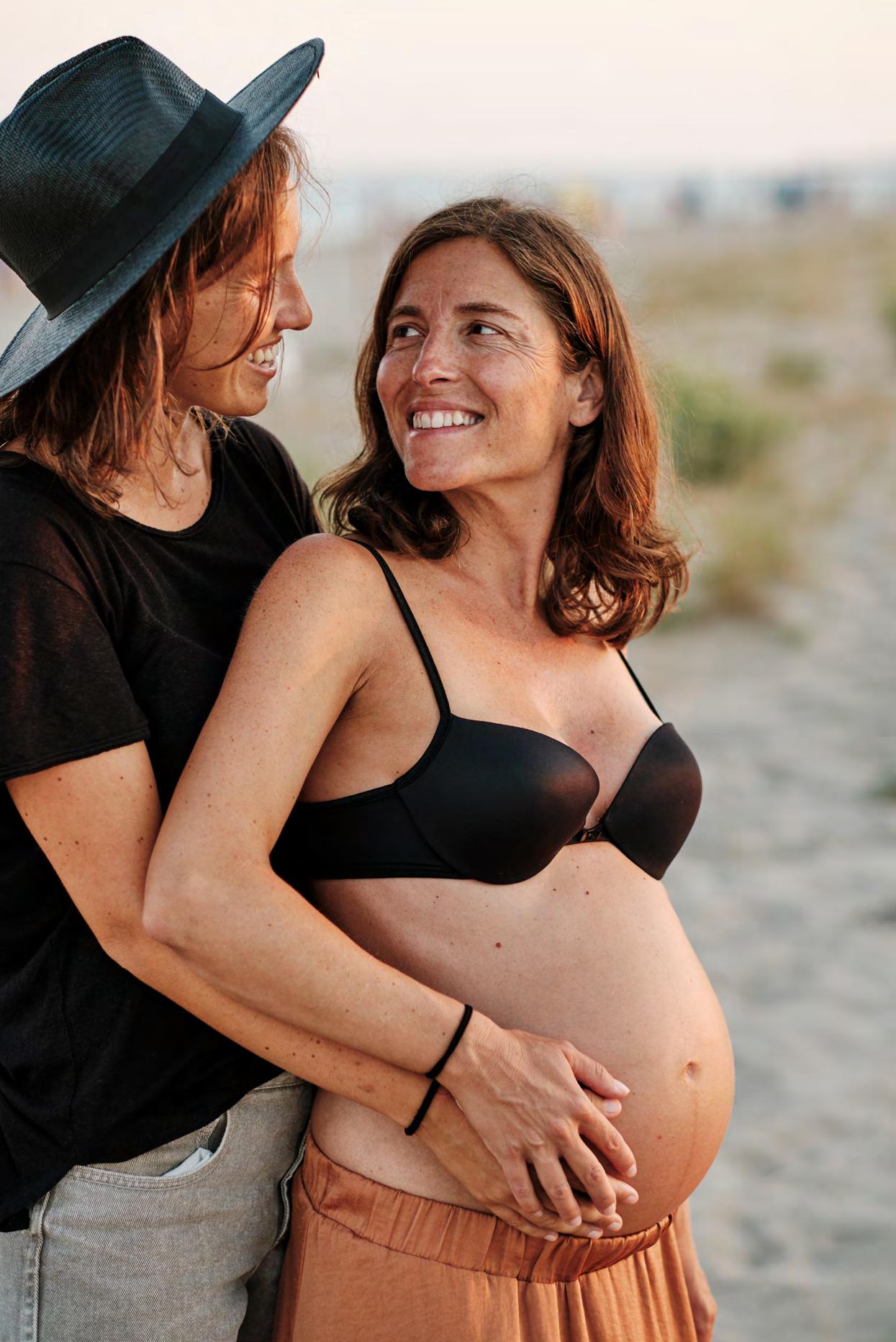
Denmark and Iceland show how advanced legal frameworks can coexist with institutional blind spots, while Lithuania and Ukraine demonstrate how social change and judicial rulings can outpace political will. This uneven terrain underscores the urgent need for coordinated, regional strategies that not only harmonize laws but also transform institutions and public cultures to ensure that rainbow families are recognized, protected, and supported in practice.
Common Challenges of Rainbow Families 3.
Despite striking national differences in law, culture, and politics, rainbow families across the Nordic-Baltic region and Ukraine confront a set of recurring and interconnected challenges. These challenges highlight how structural inequalities persist even in countries with advanced protections, and how everyday life for rainbow families remains marked by uncertainty, invisibility, and exclusion.
Legal invisibility and fragmented recognition remain among the most pressing issues. In Lithuania, same-sex couples are still excluded from statutory recognition, despite binding Constitutional Court rulings requiring reform. Families must rely on piecemeal litigation to secure basic protections, leaving most in legal limbo. Ukraine faces similar barriers, with no legal framework for recognizing same-sex partnerships, and war delaying any legislative action. Even in countries with strong legal frameworks, such as Denmark and Iceland, gaps persist. Denmark continues to limit legal parenthood to two individuals, excluding social parents and multi-parent configurations, while Iceland’s laws, though inclusive on paper, fail to capture nontraditional caregiving arrangements such as co-parenting between non-partners or families with more than two active
parents. Across the region, children in rainbow families often lack secure legal ties to all of their caregivers, undermining their wellbeing and creating vulnerabilities in moments of crisis.
Healthcare systems are another source of challenge. In Lithuania and Ukraine, non-biological parents are frequently denied authority to make medical decisions for their children, leaving families exposed during emergencies. In Denmark and Iceland, families report that hospitals and clinics often operate with heteronormative assumptions built into intake forms, medical protocols, and staff attitudes. Even where services are formally inclusive, professionals may lack training or confidence to engage respectfully with diverse family forms, creating subtle but alienating experiences. For trans and non-binary parents in particular, healthcare interactions often involve misrecognition or bureaucratic obstacles, undermining trust in systems designed to provide care.
Education systems across the region similarly reflect entrenched heteronormativity. In Lithuania, children of rainbow families often face bullying or marginalization in schools, while teachers lack both training and institutional support to intervene. Ukraine’s war context has displaced attention from inclusion in education, leaving LGBTQ+ children vulnerable in environments shaped by conservative norms. Even in Denmark and Iceland, where broader social acceptance is higher, curricula rarely include diverse family structures, and school administrators often lack systematic policies to support rainbow families. Research from Iceland shows that children of queer parents frequently experience invisibility in classroom materials, while parents must overperform their legitimacy in order to be accepted by educators and peers.
Social stigma and discrimination cut across all national contexts, albeit in different forms. In Lithuania, public opinion surveys consistently show majority opposition to same-sex marriage
or adoption, reinforcing a hostile climate. Ukraine’s war has paradoxically heightened LGBTQ+ visibility—queer soldiers and families have come to symbolize resilience—yet this has not diminished hostility from nationalist or religious groups. In Denmark and Iceland, outright rejection is less common, but rainbow families describe more insidious patterns of exclusion: assumptions that their family form is “different,” pressure to conform to ideals of the “model queer family,” or the subtle erasure of their roles in everyday interactions. These forms of stigma, though less overt, still affect wellbeing and reinforce systemic inequalities.
Finally, a persistent lack of reliable data compounds these challenges. Few states systematically collect statistics on rainbow families, their demographics, or their needs. Lithuania has no national registry, and Iceland lacks representative studies of families outside Reykjavík or those led by trans or immigrant parents. Denmark’s official data captures married or registered same-sex couples but largely misses multi-parent and nonregistered family structures. Ukraine has no systematic data at all. The absence of evidence not only obscures the realities of rainbow families but also weakens advocacy, policymaking, and service design, perpetuating their invisibility.
Taken together, these challenges reveal a regional pattern: even where laws exist, they rarely guarantee lived equality. Legal reforms without institutional change, or social acceptance without structural recognition, leave rainbow families navigating uncertainty in critical areas of life—healthcare, education, parenting, and public acceptance.
Country-Specific Variations
Lithuania illustrates the sharpest gap between constitutional principles and political practice. Landmark Constitutional Court rulings in 2025 confirmed that excluding same-sex couples from partnerships and assisted reproduction violates fundamental rights, placing a legal obligation on lawmakers to introduce reforms. Yet legislative progress has stalled, blocked by political resistance and a government coalition that remains hostile to LGBTIQ+ equality. As a result, rainbow families are forced to seek recognition case by case, as seen in the 2024 court ruling that granted parental rights to Jūratė Juškaitė. Social acceptance remains limited: Eurobarometer surveys consistently show low support for same-sex marriage and adoption, and children from rainbow families face bullying and marginalization in schools. Civil society organizations such as the National LGBT Rights Organization LGL have become essential in filling institutional voids—providing legal assistance, documenting violations, and pressing for reforms that the state has failed to deliver.
Denmark represents the achievements and limitations of progressive reform. Having pioneered same-sex partnership recognition as early as 1989, the country now guarantees marriage equality, adoption rights, and assisted reproduction access. Yet significant gaps remain. Families with more than two parents—an increasingly common arrangement—remain legally invisible, with only two caregivers recognized under law. Social parents often lack authority in education and healthcare settings, and despite recent reforms, cross-border recognition remains inconsistent. A child with legally recognized parents in Denmark may find those ties denied in other EU states, creating legal uncertainty for mobile families. Moreover, healthcare and schools, though more inclusive than in many states, continue to operate with assumptions of a “mother–father” model, leaving rainbow families to educate professionals and negotiate recognition in everyday interactions.
Iceland offers one of the strongest legal frameworks in Europe, with marriage equality, gender autonomy, and comprehensive anti-discrimination laws firmly in place. Yet legal equality has not eradicated heteronormativity in practice. Rainbow families outside Reykjavík often struggle with invisibility, as services and support are disproportionately concentrated in the capital. Immigrant and trans parents are especially underrepresented in policy debates and underserved in institutional contexts. Schools continue to rely on curricula that erase or marginalize family diversity, and healthcare providers frequently lack cultural competence in working with queer and gender-diverse parents. Research also highlights a subtle but powerful pressure on rainbow families to conform to the “model queer family”— cisgender, monogamous, middle-class, and white—leaving others feeling excluded or unseen.
Estonia stands out as the first Baltic country to introduce marriage equality, with reforms adopted in 2023 and entering into force in January 2024. The law grants rainbow families
equal access to marriage, adoption, and assisted reproduction, finally resolving years of partial implementation under the earlier Registered Partnership Act. This achievement places Estonia at the forefront of the region. Yet challenges remain: administrative inconsistencies hinder parental registration and access to benefits, surrogacy remains unavailable for samesex male couples, and cross-border recognition of parentage is not guaranteed. Social attitudes have become increasingly supportive, with over half of the population now backing marriage equality, though divisions persist along generational, linguistic, and urban–rural lines. Politically, the reform was pushed through by liberal parties against strong conservative opposition, and debates remain polarized on issues such as education and reproductive rights. Thus, while Estonia offers a model of rapid legal progress, the consolidation of social and institutional inclusion is still unfolding.
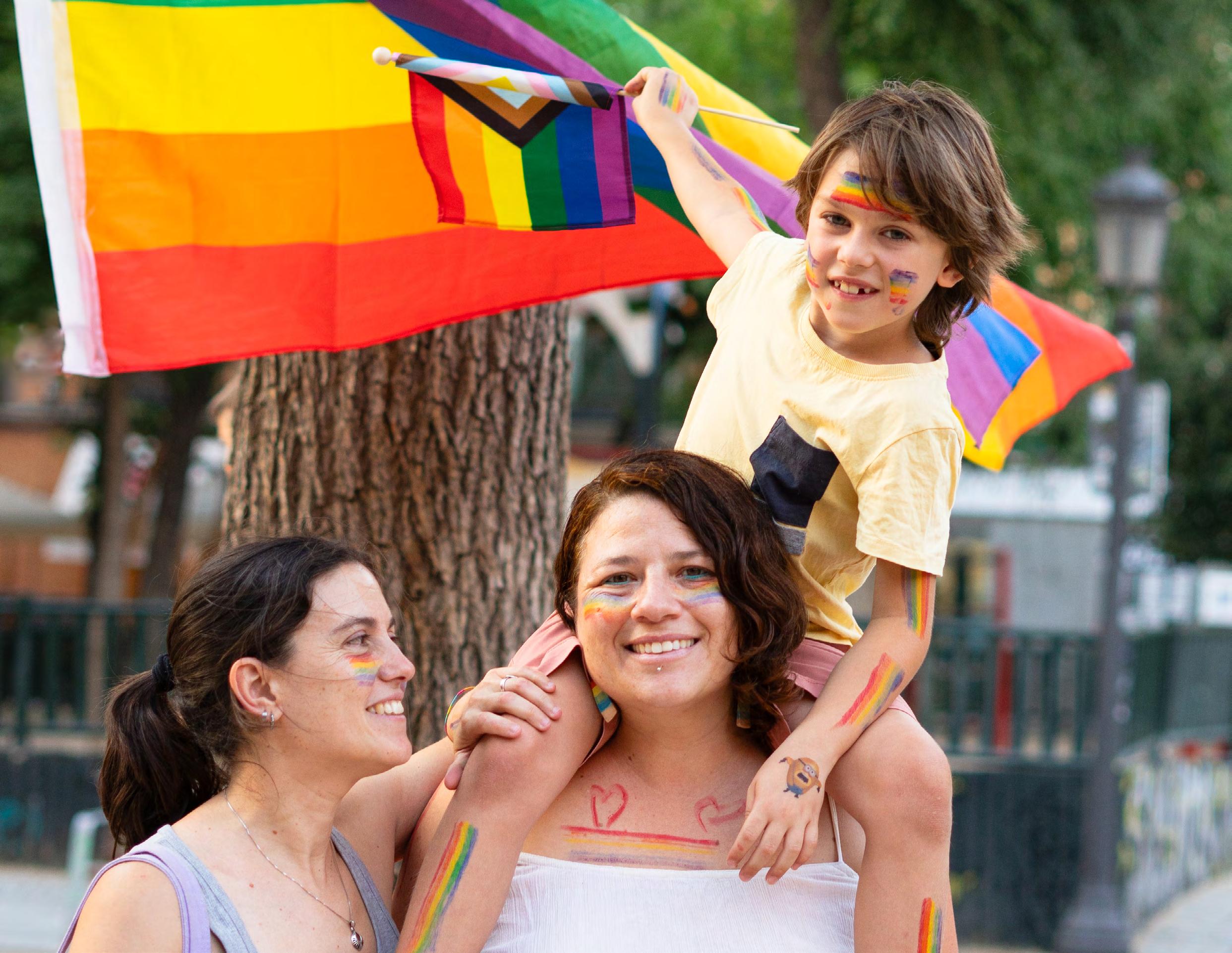
Ukraine remains the most legally restrictive of the cases. Rainbow families have no recognition under national law, leaving same-sex partners as legal strangers and their children without secure parental ties. Yet civil society resilience is striking. LGBTQ+ organizations have expanded psychosocial support, advocacy, and visibility campaigns, often under extremely difficult wartime conditions. The ongoing war has complicated advocacy— diverting political attention to survival and defense—but has also amplified international focus on LGBTQ+ rights in Ukraine. LGBTQ+ soldiers and families have become visible contributors to national resilience, shifting parts of the public discourse. Although legal reforms remain on hold, debates about civil partnerships have entered the political mainstream, suggesting potential openings for future change.
Taken together, these country-specific variations show that rainbow families live in profoundly different realities across the region: from Denmark, Iceland, and Estonia’s advanced but incomplete frameworks, to Lithuania’s stalled reforms and Ukraine’s ongoing legal exclusion. Across all contexts, however, a common thread emerges: rainbow families remain at once visible and vulnerable, legally acknowledged in principle yet socially and institutionally marginalized in practice.
Needs Across the Region
The needs of rainbow families across the Nordic-Baltic region and Ukraine are both practical and structural, shaped by gaps in law, deficits in institutional practices, and the persistence of cultural stigma. Meeting these needs requires not only legal reforms but also systemic transformation of public institutions and broader societal attitudes.
Legal recognition remains the most urgent need. Families require secure frameworks covering partnership, parenthood, inheritance, and cross-border recognition. This includes extending protections beyond two-parent models to acknowledge multi-parent families, co-parenting arrangements, and diverse pathways to parenthood such as assisted reproduction and adoption. Without such recognition, children are left in precarious positions during separation, illness, or the death of a parent. Estonia’s marriage equality reform demonstrates how rapid progress is possible, while Lithuania and Ukraine illustrate how the absence of clear legislation leaves families vulnerable to ad hoc decisions and costly litigation.
Inclusive institutions are equally essential. Healthcare systems must adapt by revising administrative forms, training staff to
work with LGBTQ+ families, and ensuring that non-biological parents can make medical decisions without obstruction. In education, rainbow families call for curricula that reflect diverse family forms, teacher training to prevent bullying, and school policies that explicitly support LGBTQ+ parents and children. In Denmark and Iceland, legal equality has not prevented schools and hospitals from reproducing heteronormative assumptions, highlighting that reform cannot stop at the level of law.
Psychosocial support and community resources are another critical need. Parents and children often face stress and anxiety stemming from legal invisibility and social stigma, which can negatively impact mental health. Civil society organizations across the region—such as LGL in Lithuania and LGBTQ+ support groups in Ukraine—provide counseling, peer groups, and safe spaces, but resources remain uneven and fragile. Expanding public funding for such services would help reduce reliance on overstretched NGOs and ensure more equitable access, especially for families outside major urban centers.
Visibility and awareness campaigns are also essential. In societies where negative stereotypes persist, rainbow families remain vulnerable to misrepresentation or erasure. Public campaigns that showcase family diversity, highlight lived experiences, and normalize LGBTQ+ parenting can help shift cultural attitudes. This is especially critical in countries like Lithuania and Ukraine, where political resistance feeds off low social acceptance, but even in Iceland and Denmark, families report the need for broader recognition beyond formal legal rights.
Finally, there is a pressing need for systematic research and data collection. Governments rarely collect statistics on rainbow families, leaving them invisible in official records. Existing academic studies are often fragmented, concentrated in capitals, and insufficiently intersectional. Comprehensive surveys,
longitudinal studies on children’s wellbeing, and research focused on marginalized subgroups—such as immigrant families, trans parents, or rural households—are necessary for evidencebased policymaking. Without robust data, advocacy remains constrained and policymaking risks overlooking key populations.
Taken together, these needs highlight a central lesson: progress in one domain, such as legal recognition, cannot by itself guarantee equality. Legal reforms must be accompanied by institutional transformation, psychosocial support, visibility initiatives, and knowledge production to ensure that rainbow families across the region are not only recognized in principle but supported in practice.

Regional and International Frameworks 6.
European and international frameworks play a decisive role in shaping the rights of rainbow families, setting legal standards and exerting normative pressure on states to provide recognition and protection. Yet the influence of these frameworks is uneven, reflecting the gap between formal commitments and national implementation.
At the European Court of Human Rights (ECtHR), jurisprudence has steadily affirmed the principle that same-sex couples and their families must enjoy legal recognition. Landmark rulings such as Fedotova v. Russia (2021) and Buhuceanu v. Romania (2023) established that denying same-sex couples any form of legal recognition violates Article 8 of the European Convention on Human Rights, which protects the right to private and family life. Importantly, these decisions also invoked Article 14 on non-discrimination, underscoring that differential treatment of rainbow families is incompatible with European human rights standards. While these rulings have been instrumental in driving
reforms in some states, their enforcement remains dependent on national political will, and countries such as Lithuania and Ukraine continue to resist full compliance.
For EU member states, additional obligations arise from directives on equality and anti-discrimination, particularly in employment, goods and services, and social security. Yet the EU has no direct competence over family law, leaving recognition of marriage, adoption, and parentage to national governments. This creates a patchwork of protections in which rights secured in one member state are not guaranteed across borders. The European Court of Justice (ECJ) has intervened in several cases—such as Coman v. Romania (2018) on residence rights for same-sex spouses, and more recently in rulings on cross-border recognition of parentage—to strengthen portability of family rights within the Union. However, implementation at the national level remains inconsistent, leaving rainbow families exposed to uncertainty when relocating or traveling.
Beyond the courts, regional cooperation frameworks provide additional support. Nordic institutions and networks have pioneered cross-border knowledge-sharing, pilot projects, and good-practice exchanges that strengthen protections for rainbow families even in the absence of binding EU legislation. Civil society coalitions, such as ILGA-Europe and NELFA (Network of European LGBTIQ* Families Associations), amplify these efforts by documenting violations, advocating for policy harmonization, and giving rainbow families visibility in European institutions. These forms of soft governance have been crucial in building momentum for reforms, particularly in smaller states with limited domestic research or policymaking capacity.
At the international level, instruments such as the UN Convention on the Rights of the Child (CRC) and the Yogyakarta Principles reinforce obligations to protect children’s rights to family life and to ensure equality irrespective of parents’ sexual orientation or
gender identity. International monitoring bodies have repeatedly called on states to remove discriminatory barriers to family recognition and to safeguard children in rainbow families against legal and social exclusion. While these standards are widely ratified, compliance is uneven, and enforcement mechanisms are limited.
The absence of binding EU-wide legislation on family recognition remains a critical gap. Rainbow families continue to face risks of legal invisibility when crossing borders within Europe, with consequences for custody, inheritance, healthcare, and freedom of movement. Regional and international advocacy therefore remains essential to bridging these gaps, pushing not only for harmonized legal standards but also for mechanisms that guarantee their consistent application in everyday life.
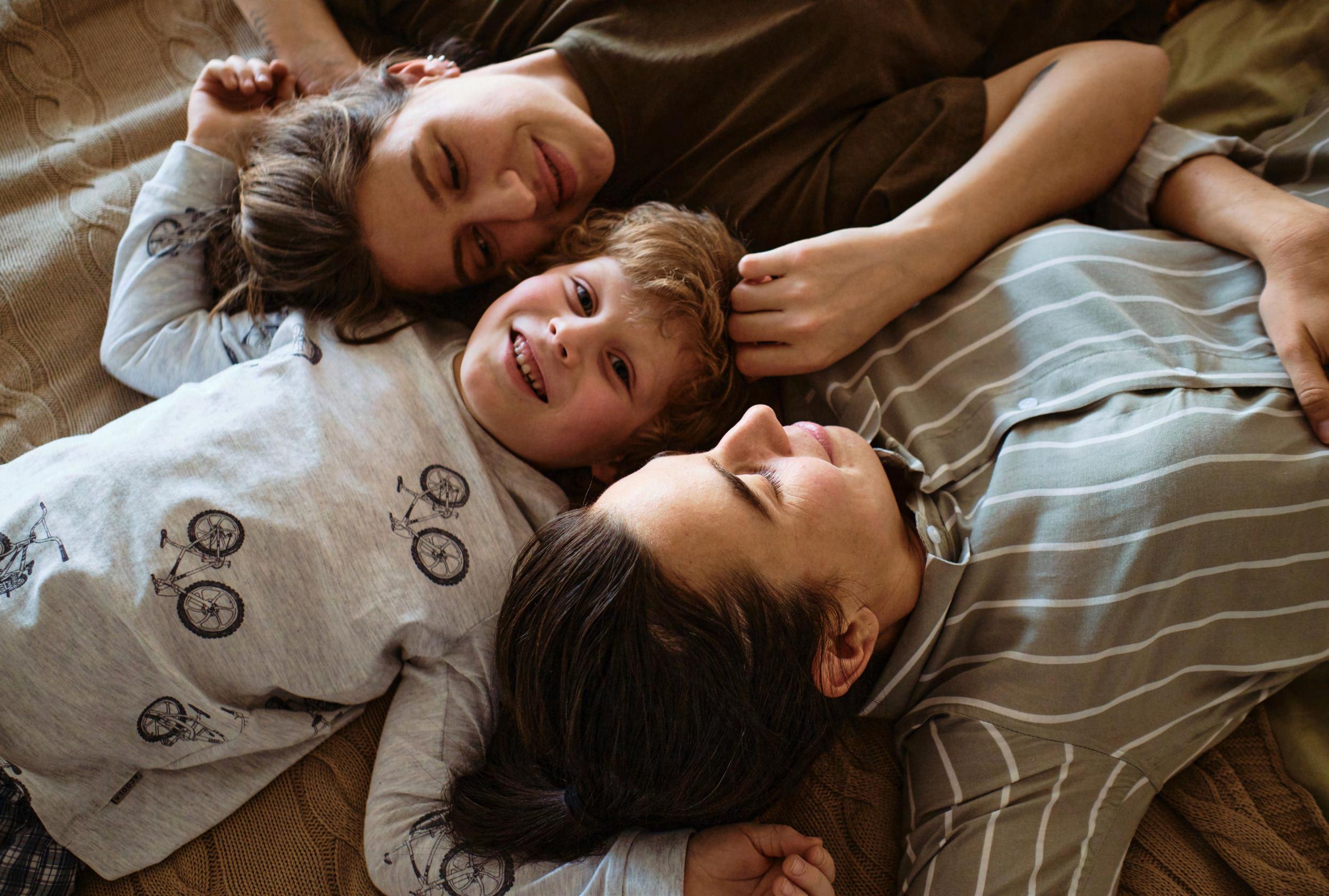
Knowledge Gaps and Research Directions
Despite important advances in law, policy, and advocacy, knowledge about rainbow families across the Nordic-Baltic region and Ukraine remains fragmented and incomplete. The absence of reliable, comprehensive data not only undermines policymaking but also perpetuates the invisibility of families whose lives already fall outside dominant norms.
Lack of systematic data collection is the most fundamental gap. Very few states collect official statistics on rainbow families, and when they do, the scope is narrow—often limited to married or registered couples. This leaves out unmarried partnerships, multi-parent households, trans parents, and families formed through informal caregiving arrangements. Without accurate data, the scale and diversity of rainbow families cannot be adequately captured, weakening advocacy and service provision.
Longitudinal studies on children’s wellbeing are particularly scarce. While evidence from North America and Western Europe consistently shows that children raised by same-sex parents fare as well as those raised in heterosexual families, region-
specific studies remain rare. This creates space for political actors to question or undermine equality reforms by pointing to “insufficient evidence.” Robust, long-term research would help counter misinformation and ground debates in lived realities.
Intersectional research is another pressing need. Most existing studies focus on urban, middle-class, cisgender families, leaving entire groups invisible. Families with immigrant backgrounds face layered challenges of xenophobia and homophobia; rural families often encounter isolation and lack of supportive services; and families including disabled parents or children must navigate multiple, overlapping barriers. Without attention to these intersecting factors, research risks reproducing the very exclusions it seeks to address.
Cross-border recognition and mobility present an emerging area of concern. As families move across Europe for work, education, or safety, inconsistent recognition of parentage and partnerships creates legal uncertainty that directly affects children’s security. Little systematic research has been conducted on how these legal fractures impact family life, emotional wellbeing, or access to rights. Comparative studies could provide vital insights into how mobility magnifies inequalities.
Looking forward, future research should adopt participatory and inclusive methodologies. Rainbow families themselves must be active partners in shaping research questions, methods, and dissemination strategies. Doing so not only enriches the quality of knowledge but also ensures that findings reflect real needs and priorities. Comparative research across Nordic, Baltic, and Eastern European contexts is particularly important, as it would reveal how diverse legal and cultural environments shape experiences in ways that are often overlooked when studies focus only on Western European models. By addressing these gaps—systematic data, longitudinal child wellbeing studies, intersectional analysis, and cross-border perspectives—researchers, policymakers, and advocates can
build a stronger evidence base to support meaningful, inclusive reforms. Knowledge production, in this sense, is not merely descriptive but deeply political: it shapes whose families are seen, whose needs count, and whose rights are prioritized.
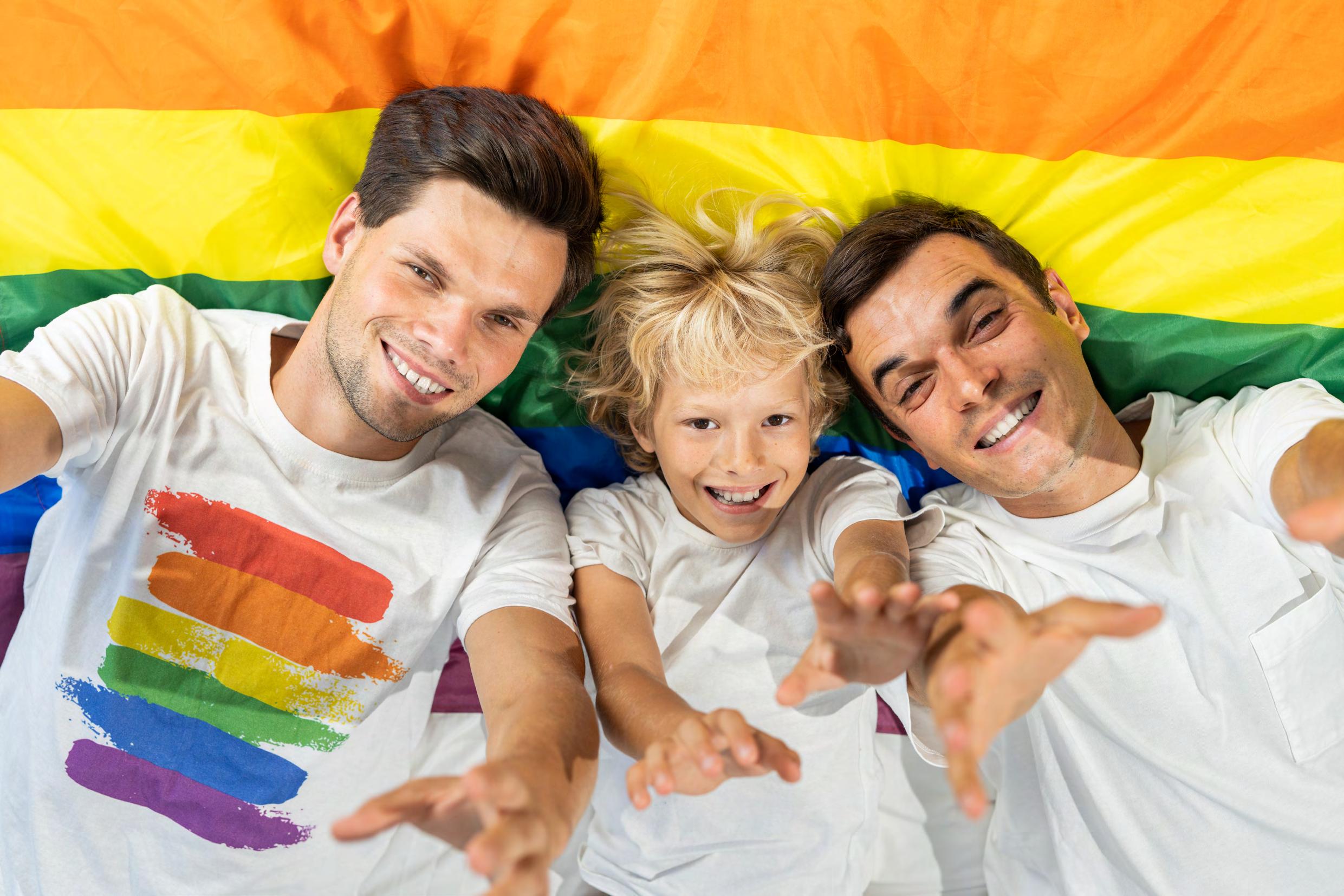
8. Transnational Recommendations
The realities documented in this research reveal that while contexts vary across the Nordic-Baltic region and Ukraine, rainbow families share recurring needs that demand coordinated action. To address these gaps, a set of transnational recommendations emerges, relevant to national governments, EU institutions, and regional organizations.
1. Reform legal frameworks comprehensively.
States should ensure legal recognition of same-sex partnerships and marriages, adoption and parental rights, and recognition of diverse family constellations, including multi-parent arrangements. Legislative reforms must be proactive rather than reliant on individual litigation, which places disproportionate burdens on families. EU-level initiatives should explore binding minimum standards for family recognition to reduce the inequalities produced by cross-border mobility.
2. Mainstream institutional inclusion.
Healthcare, education, and social services must be
adapted to recognize and support rainbow families. This includes revising administrative procedures (e.g., forms and registries), embedding diversity in curricula, and developing professional training programs for doctors, teachers, and public officials. Institutional reforms should not treat rainbow families as exceptions but as part of the wider spectrum of family life.
3. Invest in public awareness and visibility campaigns.
Social stigma remains a central challenge across the region. Governments and EU institutions should support campaigns that showcase the diversity of family life, highlight lived experiences, and counter stereotypes. Campaigns should be designed inclusively—taking into account age, language, and cultural differences—so that they resonate with diverse audiences, including rural and minority populations.
4. Expand psychosocial support infrastructures.
Rainbow families need access to mental health resources, counseling, peer support groups, and safe community spaces. While NGOs provide much of this support, sustainable public funding is required to ensure long-term availability. Targeted services should also address specific vulnerabilities, such as support for children facing bullying in schools or for trans parents navigating healthcare barriers.
5. Strengthen knowledge production and data collection.
National governments should begin systematically collecting data on rainbow families, with EU coordination to ensure comparability across member states. Academic and policy research should be funded to address knowledge
gaps, including longitudinal studies on children’s wellbeing, intersectional analysis of marginalized families, and the effects of cross-border non-recognition. This evidence base is critical for designing effective, inclusive policies.
6. Guarantee cross-border protections.
The EU and Council of Europe should prioritize mechanisms ensuring that parental rights and family ties recognized in one country are respected in others. This includes clarifying obligations under existing ECJ jurisprudence and exploring new legislative initiatives to safeguard children’s rights to continuity of family life. Without such measures, rainbow families remain disproportionately disadvantaged by mobility within the EU.
7. Empower civil society organizations.
Civil society remains a cornerstone of advocacy, service provision, and awareness-raising. Governments and international donors should ensure sustainable funding streams for LGBTQ+ organizations, moving beyond projectbased funding to long-term partnership mechanisms. This will enable organizations not only to respond to immediate needs but also to engage strategically in policy development and public education.
Taken together, these recommendations underscore that legal equality alone is insufficient. A holistic approach—combining law reform, institutional change, public engagement, psychosocial support, knowledge production, cross-border protection, and civil society empowerment—is essential to ensure that rainbow families across the region are able to live with dignity, security, and full equality.
9. Conclusion
Rainbow families across the Nordic-Baltic region and Ukraine embody resilience, creativity, and love in the face of systemic exclusion. Their lives make visible both the progress achieved, and the work still undone. Countries such as Denmark, Iceland, and now Estonia illustrate the transformative power of progressive reform, showing that legal recognition can move swiftly when political will aligns with public support. Yet Lithuania and Ukraine demonstrate the persistence of barriers in contexts where conservatism, political resistance, or conflict delay or block reform. These variations underscore that equality across the region is not a linear process but a patchwork of advances, stagnations, and contradictions.
Across all contexts, the gap between formal equality and lived equality remains wide. Families may be recognized in law yet face daily exclusion in healthcare systems, schools, or workplaces. Others may enjoy acceptance in their communities but remain legal strangers in the eyes of the state. This disjuncture reveals that legal change, while essential, cannot stand alone. Institutional reform, cultural recognition, and practical support are equally necessary to ensure that rainbow families experience equality in everyday life.
The findings of this report affirm that rainbow families are not marginal anomalies but integral parts of contemporary societies.
By mapping common challenges, highlighting national contexts, and identifying shared needs, this research contributes to a growing evidence base that affirms their legitimacy and insists on their rights. The report’s recommendations offer a roadmap not only for governments but also for educators, healthcare providers, civil society actors, and international organizations committed to equality.
Ensuring dignity, security, and equality for rainbow families is not solely a matter of justice for LGBTQ+ communities. It is a test of democratic resilience, human rights commitments, and the inclusive values that Nordic, Baltic, and European societies aspire to uphold. Rainbow families, in their everyday practices of care and kinship, expand the meaning of family itself—reminding us that recognition, solidarity, and love must remain at the center of both law and policy.

References
Andersen, M., & Larsen, T. (2021). Queer family support in Danish municipal welfare. Aarhus University.
Anderssen, N., & Hellesund, T. (2009). Does citizenship mean equality? Same-sex parenting in Norway. Sexualities, 12(4), 502–522.
Auðardóttir, A. M., & Ellenberger, Í. (2024). Hinsegin foreldrar: Seigla, ábyrgð og fyrirmyndir í opinberri orðræðu. RIKK.
Björnsdóttir, H. (2023). Kennarar og fjölskyldufjölbreytileiki: Viðhorf og fagmennska í grunnskólum. MA-ritgerð, Háskóli Íslands.
Civil Code of the Republic of Lithuania (2000). Official Gazette, 2000, No. 74-2262.
https://e-seimas.lrs.lt/portal/ legalAct/lt/TAD/TAIS.10980
Constitution of the Republic of Lithuania (1992). Lietuvos Respublikos Konstitucija. Official Gazette, 1992, No. 331014.
https://e-seimas.lrs.lt/portal/ legalAct/lt/TAD/TAIS.21892
Constitutional Court of the Republic of Lithuania (2025, April 10). Ruling on the Assisted Reproduction Law.
https://www.lrkt.lt/lt/teismoaktai/paieska/135/ta2601/ content
Constitutional Court of the Republic of Lithuania (2025, April 17). Ruling on Civil Code Article 3.229 (Partnership Regulation).
https://www.lrkt.lt/lt/teismoaktai/paieska/135/ta2602/ content
Danish Institute for Human Rights (2024). LGBT+ Barometer: Experiences of LGBT+ people in Denmark. https://www.humanrights.dk/ lgbt-barometer
Danish Institute for Human Rights (2024). LGBT+ in Denmark: Legal and social developments.
https://menneskeret.dk/lgbt
Danish Parliament (2024).
Amendments to the Children’s Act – Legal recognition of intra-family egg donation and parent registration reforms.
Dong, F. V. N. (2025). Rannsókn á stöðu og líðan hinsegin fólks á Íslandi. Reykjavíkurborg og
Samtökin ‘78.
Einarsdóttir, A. (2013).
Lesbískar mæður á Íslandi: Rannsókn á fjölskyldugerð og viðhorfum samfélagsins. MA-
ritgerð, Háskóli Íslands.
Einarsdóttir, A. (2016). Fjölbreytileiki fjölskyldna og viðurkenning í velferðarkerfinu. Ritið, 2(2016), 65–82.
EU Agency for Fundamental Rights (FRA) (2024). LGBTIQ Survey II – Country Data: Denmark.
https://fra.europa.eu/sites/ default/files/fra_uploads/ lgbtiq_survey-2024-country_ sheet-denmark.pdf
European Court of Justice (2021). Case C-490/20 (V.M.A. v. Stolichna Obsthina, Rayon ‘Pancharevo’).
European Network on Statelessness (NELFA / ILGA Europe). (2019, Nov 7). Even where countries in Europe recognise marriage equality, children born to same sex families remain at risk of statelessness.
https://www.statelessness.eu
Eysteinsdóttir, Í. B., & Ellenberger, Í. (2025).
Staða hinsegin nemenda
í grunnskólum Kópavogs: Viðhorf og ábyrgð
skólastjórnenda. Netla –Veftímarit um uppeldi og menntun.
https://doi.org/10.24270/ netla.2025/5
Government of the Republic of Lithuania (2021, Nov 12). On the approval of the development programme … 2021–2030. TAR.
Guðmundsdóttir, M. H. (2022).
Hinsegin innflytjendur og fjölskyldulíf á Íslandi. MAritgerð, Háskóli Íslands.
ILGA-Europe (2024). Annual Review of the Human Rights Situation of LGBTI People in Denmark – 2024.
ILGA-Europe (2025). Rainbow Europe country ranking: Lithuania. https://rainbow-europe.org/ country-ranking
Johansen, A., & Rydström, J. (2020). Safe spaces for queer families in Scandinavia: Peer support and visibility. Nordic Journal of Social Research, 11(2), 43–58.
Jónasdóttir, A. M. (2016). Gagnkynhneigt forræði:
Hinsegin mæður og stjórnun fjölskyldulífs. MA-ritgerð, Háskóli Íslands.
Kjaran, J. I. (2014). Queering the Icelandic upper secondary schools. PhD thesis, University of Iceland.
Kjaran, J. I., & Jóhannesson, I. Á. (2010–2017). Multiple works on heterosexism, LGBT students, and queer education in Iceland.
Kjerúlf, B. B. (2022).
Viðtalsrannsókn með trans og kvár einstaklingum á Íslandi. MA-ritgerð, Háskóli Íslands.
Law on Assisted Reproduction of the Republic of Lithuania (2016). Official Gazette, 2016, No. 55-2047.
Law on the Protection of Minors Against the Detrimental Effect of Public Information (2002). (Repealed discriminatory provisions in 2024).
LGL (2021–2025). Multiple reports on LGBTI families in Lithuania. https://www.lgl.lt
Lundahl, L., & Andersson, E. (2015). Family diversity and heteronormativity in Swedish schools. Scandinavian Journal of Educational Research, 59(6), 638–652.
Nordahl, K., Eriksson, M., & Malmberg, T. (2022). Invisible inclusion: LGBTQ+ families in Swedish welfare institutions. Journal of Family Studies, 28(3), 412–430.
Rigshospitalet & LGBT+ Danmark (2025). Inclusive Midwifery Services for LGBT+ and Multi-Parent Families.
Shevtsova, M. (2024). Queering Displacement: The State of the Ukrainian LGBTQ+ Community During the Russian Full-Scale Invasion. https://gppi.net
Stephensen, Ó. S. (2024). Bið og breytt þjónusta: Starfsemi trans teymis Landspítalans 2012–2023. MA-ritgerð, Háskóli Íslands.
Stjórnarráðið (n.d.). Aðgerðaáætlun í málefnum hinsegin fólks 2022–2025. Government of Iceland.
Stjórnarráðið (2023). Parliamentary resolution on an LGBTI Action Programme 2022–2025.
Valdimarsdóttir, K. (2024).
Iceland’s response to antiLGBTQIA+ policies in Europe.
Vilhjálmsson, Þ. (2025). Kortlagning á stöðu, líðan og réttindum hinsegin fólks á Íslandi. Háskóli Íslands.
VIVE (2023–2024). Reports on wellbeing and LGBT+ families in Denmark. https://www.vive.dk
Yarmanova, H., et al. (2012). LGBT-sim’i v Ukraini: Sotsialni praktyky ta zakonodavche rehuliuvannia. Insight NGO.
Yuzyk, I. (2024). Chervone svitlo dlia yevrointehratsii … Zmina.
Zmina (2015–2022). News articles on queer marriage and partnerships in Ukraine.
